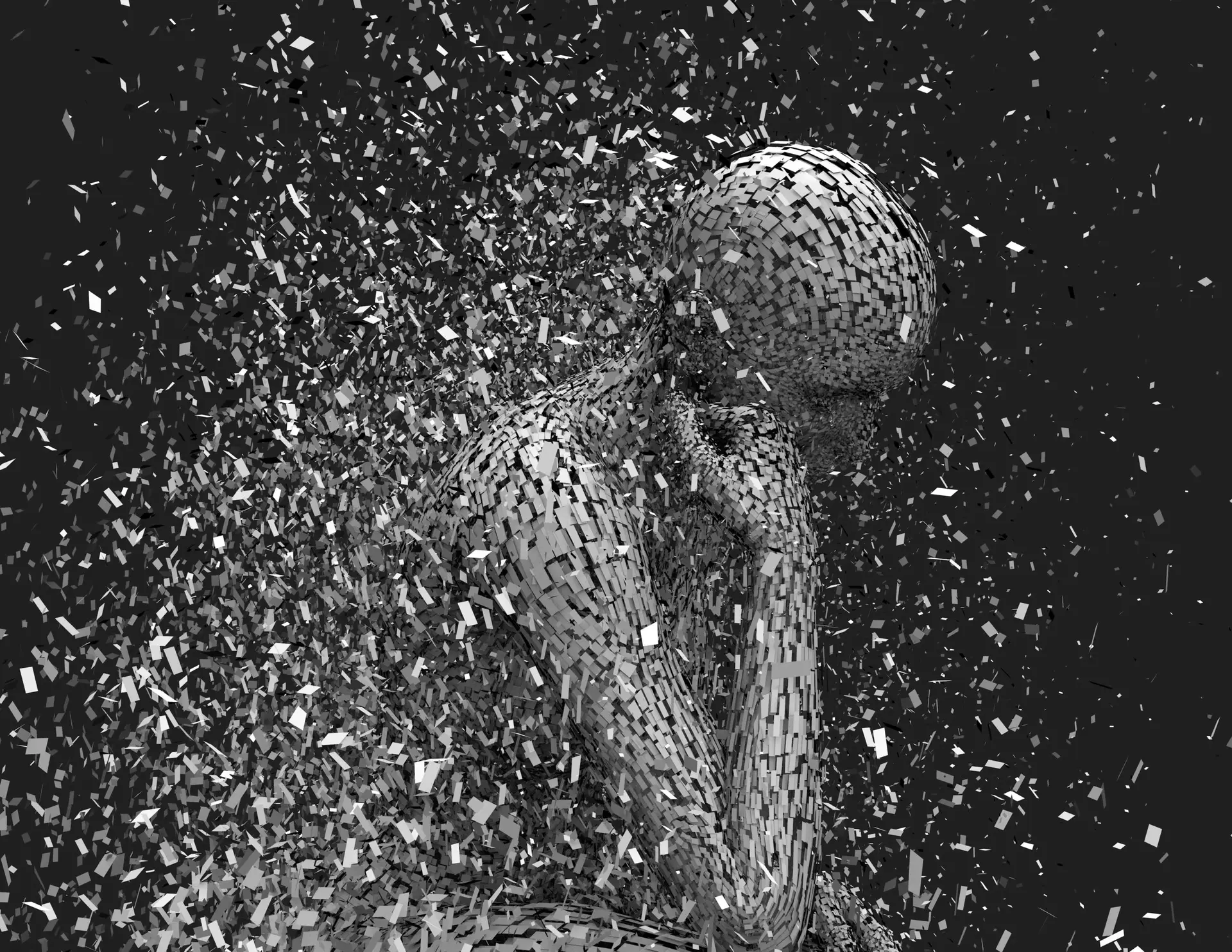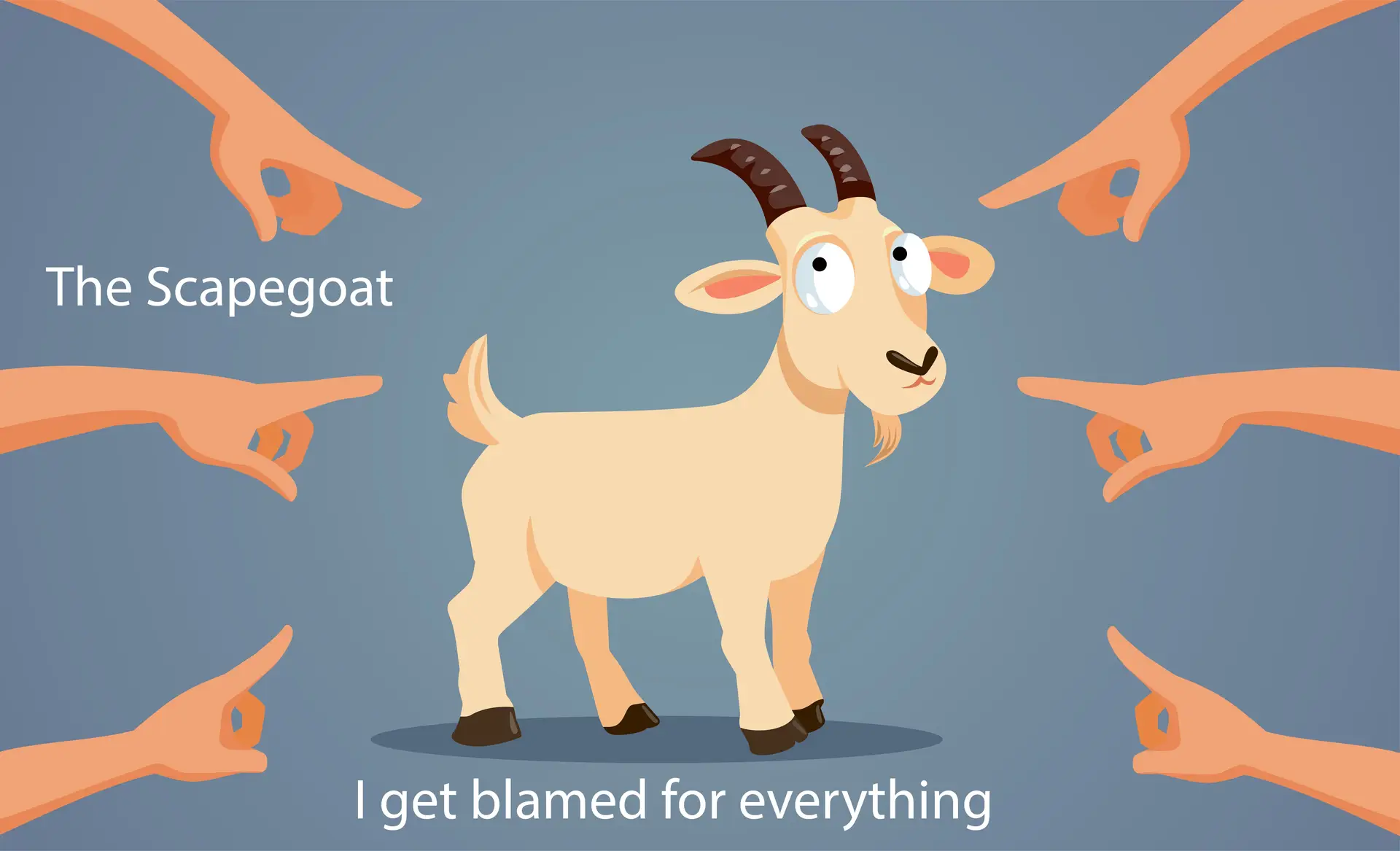Defences Protect Us
Defences are necessary and we all need to have them. The ideal defences are the mature defences of sublimation, compensation and assertive communication.
When we have come from a dysfunctional background, we are going to have more complex defences and we developed these as they were necessary at the time for our survival. In a household with a narcissistic parent, children are not nurtured, helped to discover themselves, build their skills or become independent. They are actively punished when they attempt to assert their wants and needs and grow into their inherent characters. They will adapt themselves in many ways and utilise many defences.
We are born as our inherent self and this becomes modified over time by the environment we grow up in. This means we become an adapted version of ourselves and we disconnect from certain parts of ourselves which we may feel are dangerous as they get us rejected, punished or shunned.
The Authentic Self and the Adapted Self
We can think of our inherent self as our authentic self and the modified version we become as the adapted self. We all live in an adapted self to a certain extent and this can be put on a spectrum in terms of how much we can be ourselves. In life, there are various pressures from families, friends, society and religion which ask or demand certain things of us. In order to feel accepted and loved, we often feel that we need to be what others want us to be. This means we will reject and repress some parts of our characters which we don’t feel are acceptable.
By necessity, some children develop more of an adapted self than others.
A Fortress and A Prison
Our defences can be likened to a fortress which we build around our psyche to protect it. Whilst we may feel safer within that fortress – it can also be likened to a prison. The walls protect us and while they keep other people out and away, we can end up feeling lonely and isolated.
The fortress walls are made of our behavioural patterns. These become ingrained and automatic – which is necessary as defences need to be accessed in a split second so that they are effective. This means that we can end up trapped in those patterns. We repeat the same patterns over and over again.
These patterns may involve substance misuse, such as a daily drink which ‘takes the edge off’ or a dysfunctional relationship which we are frightened to leave or destructive ways of thinking about ourselves such as “I am an idiot” and “I never get anything right.”
Our defences are developed out of the inherent character we are born with and are rooted in our values.
The Benefits of Defences
Our defences help us to feel safer in the world, especially when it feels like a dangerous place where no one can be trusted. Defences feel familiar and have been with us since our early years, they were the strategies that worked best for us and that is why we stick with them.
The desire to stay in our defences goes deeper than needing to feel safe. For many, there is an underlying fear of not being able to function, of falling apart, of going mad, of being overwhelmed, of feeling the way we did in our early years (which we may not remember consciously). Fear of this can keep us avoidant of wanting to face the pain which is buried deep down in our psyche.
There is a price that we pay when we stay living in our fortresses.
The Drawbacks of Defences – The Price We Pay
Our defences can be damaging to our physical health, our finances and relationships, especially if we have unhealthy addictions such as shopping, drugs or alcohol.
We can be stuck in a self-sabotaging mindset. This can include procrastinating and being perfectionistic and this can mean that we struggle to finish tasks and we will find it difficult to reach our potential. There can be an underlying belief that “to be loved I have to fail.”
We see life through our trauma bias and are living life in the now as if the past trauma were still happening. Our bodies and minds are regularly triggered, and we are often in fight, flight, freeze or submit responses. This is stressful and very hard on our bodies. We have an expectation of danger which means we are often in the thinking patterns of catastrophising and worst-case scenario thinking which are not always realistic when we are not around narcissistic people.
We have black and white (devaluing and idealising) and other extreme thinking patterns which means that we can’t see people and situations in life in a realistic way. This can show up as thoughts like, “No one will ever love me” “I am worthless” “I will never be able to trust anyone” “People are all out for themselves” “If anyone does like me it is only because they don’t really know me.”
We may be chronic people pleasers who put our own needs last and other people’s need first and we may get our self-worth from making other people happy. We may not think that our own happiness or contentment is either possible or important. We may feel a strong sense of guilt if we think about putting ourselves first.
Our lack of confidence in ourselves can mean that we have social anxiety which can be detrimental to our well-being. Humans are social animals even if we are more introverted.
We may break promises we make to ourselves and to others and this can result in us feeling frustrated with ourselves. We may give up what matters to us.
We may avoid and put off dealing with painful situations which can mean that things get brushed under the carpet, don’t get talked about and don’t get resolved.
When we come from a dysfunctional background, we can be impulsive (this means that we have an impulse, a feeling to do something suddenly, which we act on without being self-reflective or using careful consideration) and these impulses overrule our judgement.
We may struggle to make a decision and may even be unable to in some instances as we have strong inner conflicts or paralysing fears of being judged and/or criticised.
We may cling to partners in romantic relationships and want our partners to be dominant or we may strive to dominate them. We may feel that we want to be rescued from life or looked after or we may imagine fantasy relationships with people who are unattainable – perhaps they are famous or married.
We may spend a lot of time obsessing over abandonment and possible abandonment which can mean we spend a lot of time thinking about our relationships, friendships or jobs ending. We expect rejection by others.
We may have a sense of confusion about our role in life, who we are, where we are going and who we want to be and be unsure of aspects of ourselves such as our beliefs and desires.
In short, the price we pay for staying in our defences is that we cannot achieve a strong stable sense of self, we are not in touch fully with our inherent real self and are therefore not fully sure of who we are, what we want and what would make us truly content and happy in life. We cannot develop full autonomy over ourselves and our lives. We are unable to make the changes we need to make in order to make our lives better for ourselves – like leaving our partner or changing jobs, moving towns and so on.
The Benefits of Moving into Mature Defences
To become masters of our fate we need to make the unconscious conscious, as Carl Jung said:
“Until you make the unconscious conscious, it will direct your life and you will call it fate.”
Jung also said:
“A man likes to believe that he is the master of his soul. But as long as he is unable to control his moods and emotions, or to be conscious of the myriad secret ways in which unconscious factors insinuate themselves into his arrangements and decisions, he is certainly not his own master.”
Moving out of our unhealthy defences will mean that we move into a more realistic way of thinking, and we will develop healthy levels of narcissism and self-esteem which will enable us to:
Become an advocate for ourselves and not permit ourselves to be treated badly.
Balance our needs with the needs of others rather than elevating their needs and wants above our own.
Cut or limit contact with others who are damaging to us and do not have a healthy respect for us.
Find hope, meaning and purpose in our lives.
Develop a sense of confidence, resilience and general well-being.
Develop the ability to become more stoic – to quote Marcus Aurelius the Roman Emperor, “Choose not to be harmed and you won’t feel harmed. Don’t feel harmed and you haven’t been.” If we have been in a conflict with another person we can assess their opinion to see if its valid and if its not we can change our perception of events by understanding when people are projecting their own issues onto us or others, scapegoating us or others and learn to give those feelings back to those people (internally within ourselves).
How Can We Move into More Mature Defences?
We can move into more mature defences by developing our self-awareness, in this way we make the unconscious conscious, and this then gives us the ability to change our behavioural patterns. We cannot change that which is unconscious.
Articles on Defences
Please see:
How Do We Say No When We Can’t Say No?
for more details on the various defences that help us to survive.
Children of Narcissists on YouTube
If you prefer audio – I read through this article on my YouTube channel.
There are also a few videos which are not based on articles.








